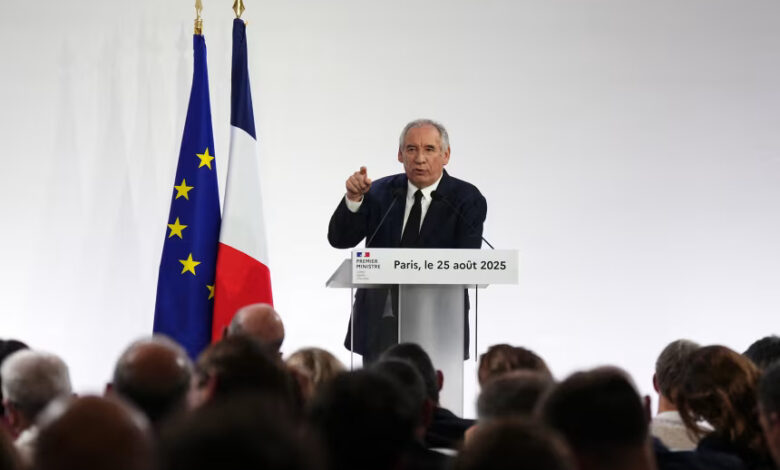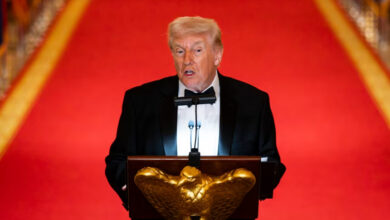
Bayrou jolted the political establishment out of its summer slumber on Monday with his unexpected move to seek a September 8 confidence vote on his debt-cutting plan.
The country’s main opposition parties were quick to make it clear that they would be voting against him and his minority government.
“We need a different Prime Minister and, above all, a different policy,” lead Socialist lawmaker Boris Vallaud wrote on X.
Finance Minister Eric Lombard said the government was still hoping to reach a last-minute deal with the opposition, but from the far-right to the hard left, party leaders made clear that was unlikely to happen.
Jean-Luc Melenchon, of the hard left France Unbowed, went even further, saying President Emmanuel Macron himself should leave.
“Emmanuel Macron must go. He is responsible for the crisis,” Melenchon wrote on X.
Macron called a snap election in June last year which he said would bring “clarity” – the very same words used by Bayrou on Monday to explain why he was holding a confidence vote. But the 2024 snap election only resulted in a more fragmented parliament, bringing no clarity at all.
France’s blue chip CAC40 index was down nearly two percent in early trade on Tuesday, having fallen 1.6 percent late on Monday. France’s 10-year bond yield rose around three basis points in early trade to around 3.52 percent, its highest since March. When a bond’s yield rises, its price falls.
Justice Minister Gerald Darmanin told France 2 TV that while the government was still working on trying to find a compromise agreement, he “could not rule out” the scenario of another costly dissolution of parliament.
Macron, who is the only person who can dissolve parliament and launch fresh legislative elections, has yet to comment on Bayrou’s move, although Bayrou’s entourage said on Monday that Macron had signed off on the plan.
Asked about comments by other politicians that a collapse of Bayrou’s government could result in the International Monetary Fund having to intervene in France’s finances, Lombard replied: “This is a risk that is in front of us.”
“It is a risk that we would like to avoid, and one which we should avoid, but I cannot tell you that this risk does not exist,” he added.
The IMF usually only offers financial support to countries that find themselves shut out of financial markets due to dire budget crises, and even then only on condition of making serious reforms. France is very far from being in that situation.




